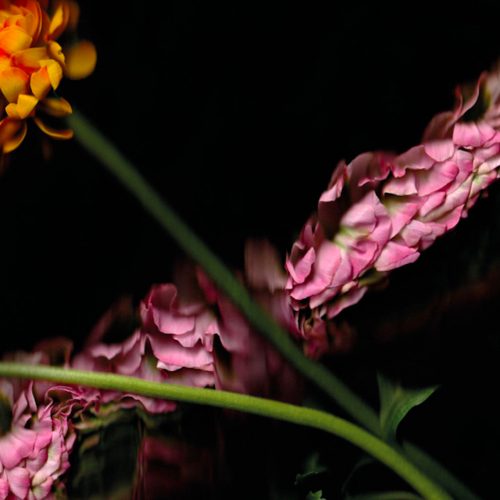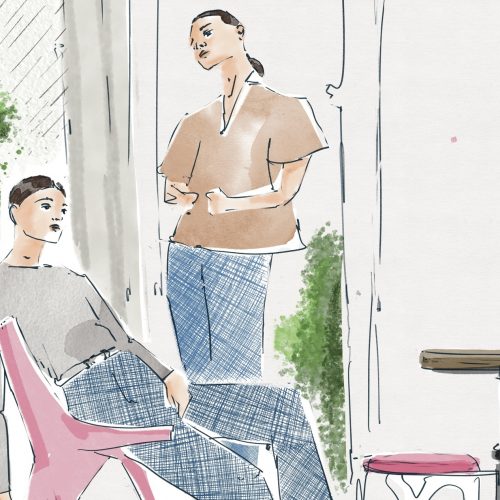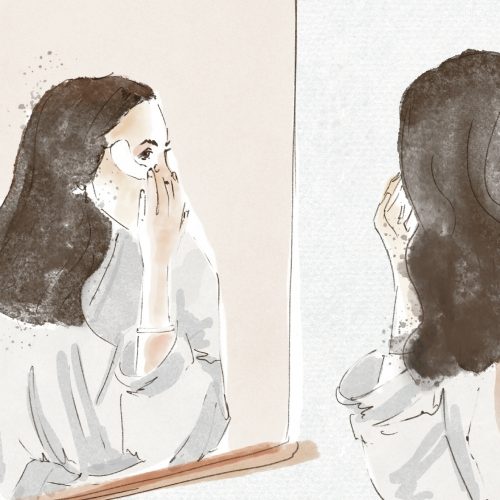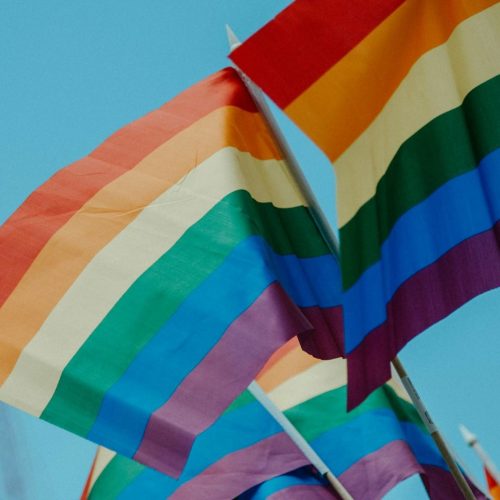In Conversation With Mogli | About Toxic Masculinity, Fast Fashion and Climate Change
Mogli opens a discussion and raises awareness about toxic masculinity, fast fashion, climate change, and more.
To receive the Luxiders Newsletter, sign up here.
Join us in conversation with pop sensation and social justice advocate, Mogli. By sharing her journey of depression and burnout, Mogli opens a discussion and raises awareness about toxic masculinity, fast fashion, climate change, and more.
She created a visual album called RAVAGE, accompanying her musical releases. Through metaphors and symbolism, the visual narrative enriches the experience of listening to her music, whilst existing as an art form in its own right. Discover how Mogli is a multifaceted artist, exploring different mediums to shed light on different issues - reflecting the interconnected nature of the problems we face in society. Unlike other artists, Mogli uses her platform to enact positive change and highlight inequalities in the world through the lens of her personal struggles.
RAVAGE is released today, 12th of May 2022.
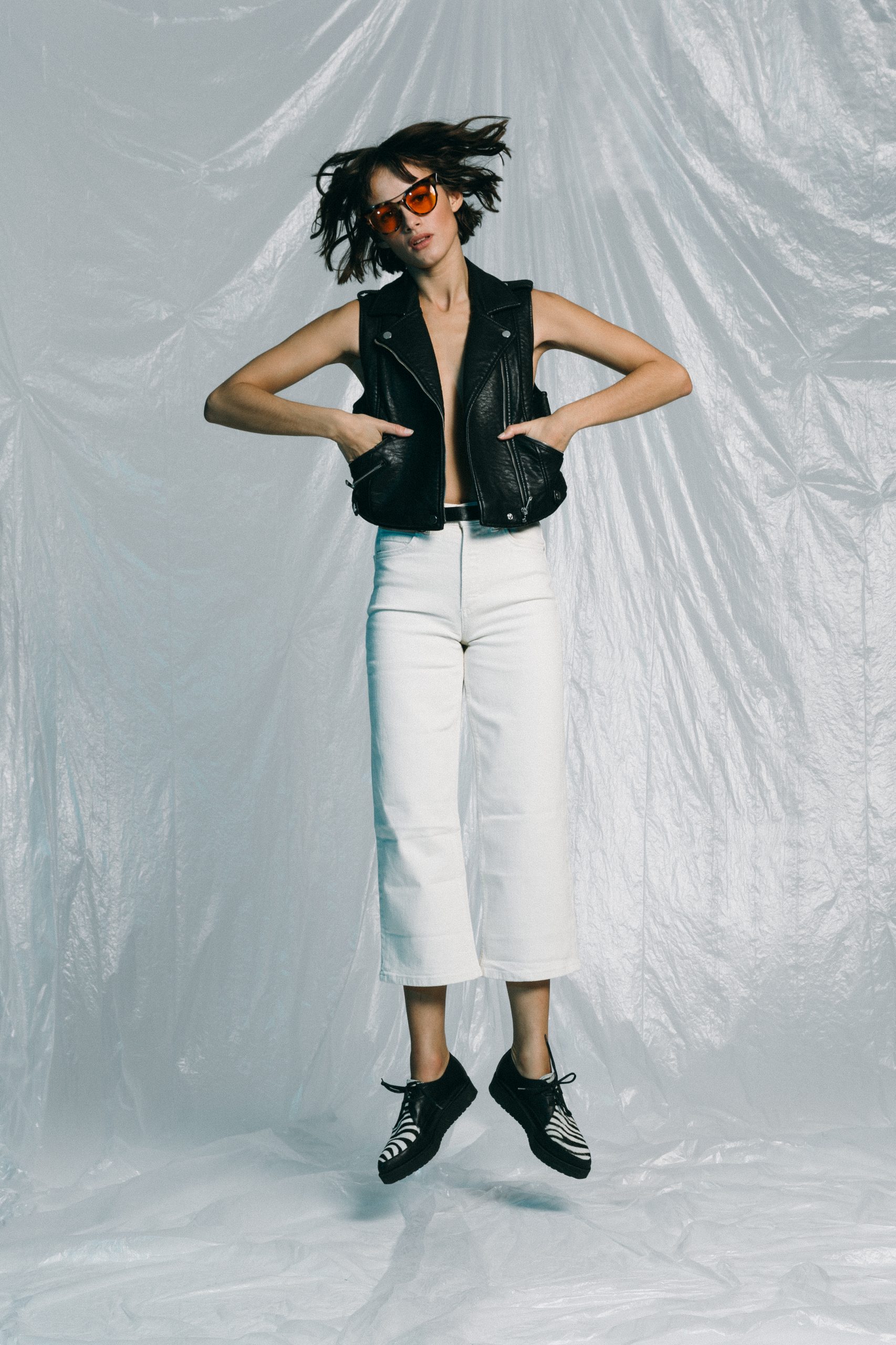
IN CONVERSATION WITH MOGLI
We notice on your website it states you are not affiliated with a record company. How important is this for you? How does this reinforce the message behind your music?
It is super important to me. I like to have control over every aspect of my output. I’m involved with every part of my career. All the visual things that you see, my artwork, the styling, to how I want to release my art. That way [not being affiliated with a record company] I can make sure my message is in everything that I do. For example, my deluxe vinyl has a scratch off top, so you can scratch off your own message or anything you like on the top. I am inviting people to shed their outer layers of personality. I also release a new song, plus an episode every month. That’s not the most financially rewarding way to do things, so I guess a big record label would not have allowed me to do it. This is the way that I wanted to release it - because I am inviting people on an emotional journey with themselves. Reflecting takes time, so I wanted a month for every song, that is also a topic. So being an independent artist definitely reinforces the message of my music. It is also a personal choice. Frankly, I don’t want white old men to decide over me and over my career.
Large companies definitely focus on the financial benefits of how music and art can be released, so we love that you are focused on doing things your own way. It makes your art more authentic and pure.
You obviously have a bit of an attachment to visual art, after your netflix box-office hit “Expedition Happiness” and your visual album ‘RAVAGE”. What inspires the visual elements of your art? Do you feel your music develops a deeper meaning with visuals alongside?
I wouldn’t say the music develops a deeper meaning, because it’s more of a stand alone piece of art for me. But as an artist I am not just a singer. I like to convey my message in different outlets. I like to have different outlets to express what I want to say. In RAVAGE for example, the movie wasn’t created to be with the music. We didn’t try to match visuals to the music. I took the underlying message of the album and the themes and topics, and then I expressed them in different art forms. Such as dance in the movie, and in the story of the heroine I express the themes there, and the costume and the make up. I feel more like a communicator of emotions, and I like different ways of communicating. I love exploring different ways to communicate, so my next project might be completely different. All the different parts of the art, like the album and the visual side, are all stand alone pieces of art and then they go together.
It’s really interesting that all the elements of your work can stand alone as incredible pieces of art but they can also come together. I have not seen a lot of artists take this approach.
I found the theme of toxic masculinity really interesting. I think it’s very present in our society and governs a lot of male actions that we might not immediately link to toxic masculinity. Can you talk to us about how toxic masculinity is involved and represented in RAVAGE?
I was also involved in the casting of the movie, the cast are all people that I know from my close friends. I was also involved in directing leading up to the shoot of the movie. I had lots of time together with the cast and we spent a lot of time talking about topics like toxic masculinity in male characters and how we can portray it on the screen (even though Ravage is an abstract project and it has to be metaphorical). We decided to involve the toxic masculinity in the character Melancholy, because when we meet him he suppresses his emotions. You can see how that progresses into depression and aggressive behaviour to himself and people around him. Later he learns to be brave enough to make himself vulnerable and learn and address his emotions to overcome his struggles.
It is so important to create a space where people feel safe and able to talk about their emotions so they can learn from them and process them. We love how you dealt with toxic masculinity in the film. We agree with your belief that a sustainable world incorporates social problems such as feminism and LGBTQIA+ rights. How important is it for society to understand that these issues are interlinked? How would society understanding this change the way we tackle climate change and environmental issues?
That is an interesting question. I mean there is the self love part of your question where I think we have to realise that how we treat the people around us and nature surrounding us, ultimately reflects how we feel about ourselves. It just feels a lot better to be good to yourself and those around you. Climate change and climate justice is a gender issue and it is really important to tackle these issues together. It is really unfair that women around the world suffer so much more from climate change. The numbers are really crazy and I don’t think a lot of people realise that these numbers are so crazy. For example, up to 80% of people who flee countries from natural catastrophes are women and girls. On top of that, they are much more vulnerable to violence on the way. They have less access to cars, sanitary situations to overcome, they are vulnerable to sexual violence, it’s a lot harder for them.
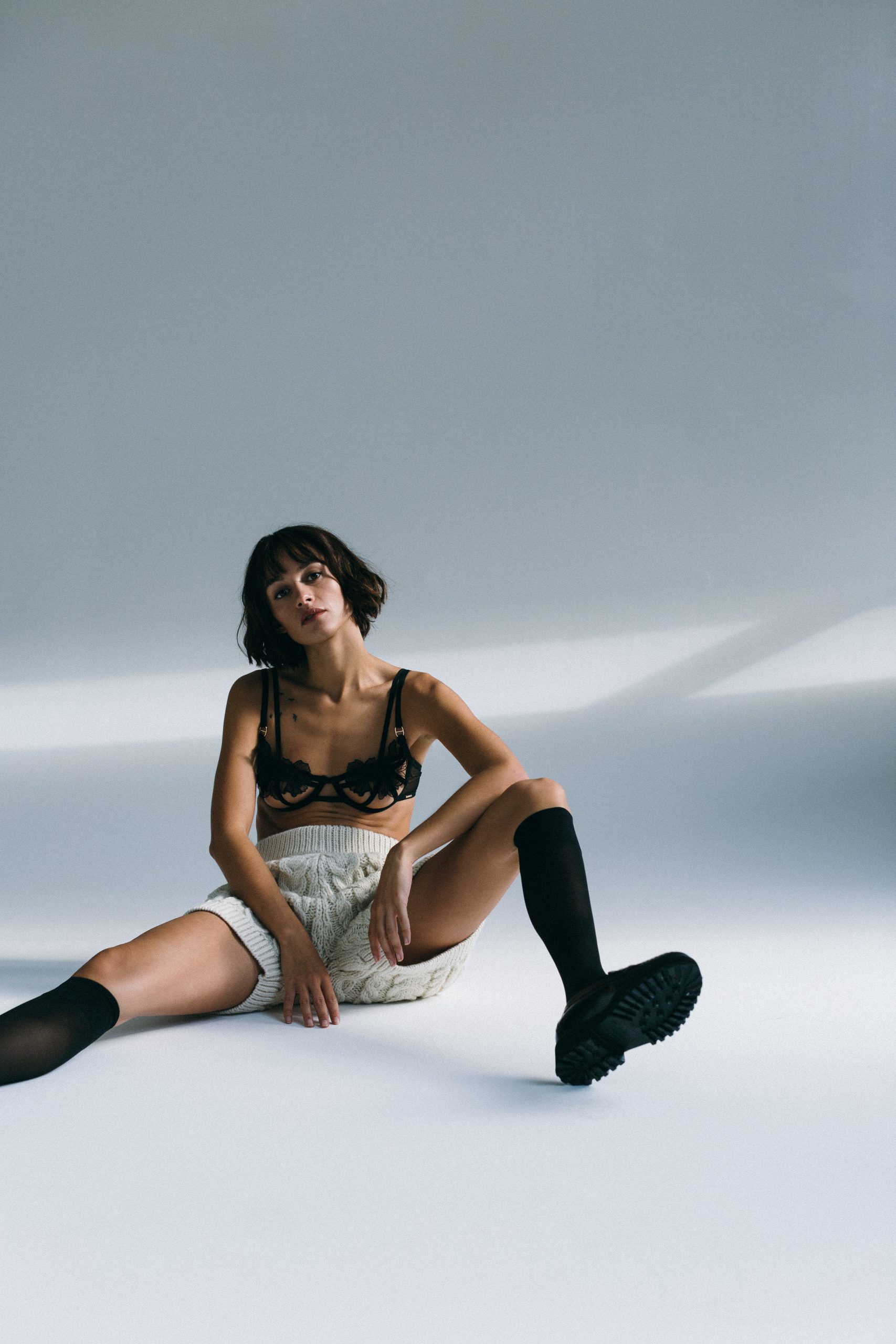
What’s also important is that 80% of the food in the world is produced by women and they only own 20% of the land. I really deeply believe that if we would change this fact, climate change would also change…because climate change takes away resources and livelihoods from women. If we tackle these societal questions it would benefit our earth as well. People just don’t know and it’s really unfair. When the Tsnami hit, 70% of the people that died were women because a lot of them couldn’t swim. Climate change really should be a feminist issue.
It is really interesting to hear the numbers. A lot of people say eco feminism, but when you actually hear the statistics it is really surprising. The way that women have less access to cars and women not being encouraged to swim, it all goes back to women not being viewed as being less active than men and not needing swimming lessons. It is so deep rooted in society it is hard to dismantle it. The way you are challenging that is amazing, it is really nice to see an artist speaking out about these issues and using their platform for good.
You released an earth friendly clothing line alongside RAVAGE, could you tell us about this?
I switched my entire wardrobe to ethical alternatives five years ago. Back then it wasn’t as known about the issues of fast fashion, so there were less brands available. There were really cool brands but only a few, so I had to look world wide for brands. It is important to me to use that part of my platform because I do have redcarpet events and social media photoshoots, and I love fashion. It was important for me to show you can be sustainable but also have fun with fashion and be fashionable without hurting our planet. One way of doing that was to create my own clothing line which was a lot of fun.
I also intertwined it with another project. I had an outfit for every character in RAVAGE. Because every character was an emotion, I created different outfits for each emotion. So one was called insecurity or one was called melancholy, etc. It wasn’t an insecure outfit but it was something I would choose to wear on an insecure day that would make me feel more powerful. I feel like fashion can do that and expressing yourself with your clothes can really help create your personality and help you love yourself. It might sound superficial, of course you can be happy naked or in jeans, but for a lot of people expressing themselves in their clothes is really important for their mental health and their personality. I tried to delve into how my personality has all these different facets and I have all these different emotions. I don’t want to be just one peson I want to be allowed to be all these different Mogli’s.
I love how everything you’ve done is intertwined but also a stand alone thing as well. I think it is a misconception that sustainable fashion is boring and restrictive. It is good that you are making it more accessible and fun.
It wasn’t that expensive! People always say it is more expensive to shop sustainable and I know it can be, but I also tried to make it accessible for people.
That is really good! I do think there are a lot of more sustainable options out there.
The most sustainable option is to wear what you already own!
I completely agree. I also think it is really good that you are normalising the complexity of emotions and you are not defined by your mental health issues. It is important to embrace those issues and come back stronger.
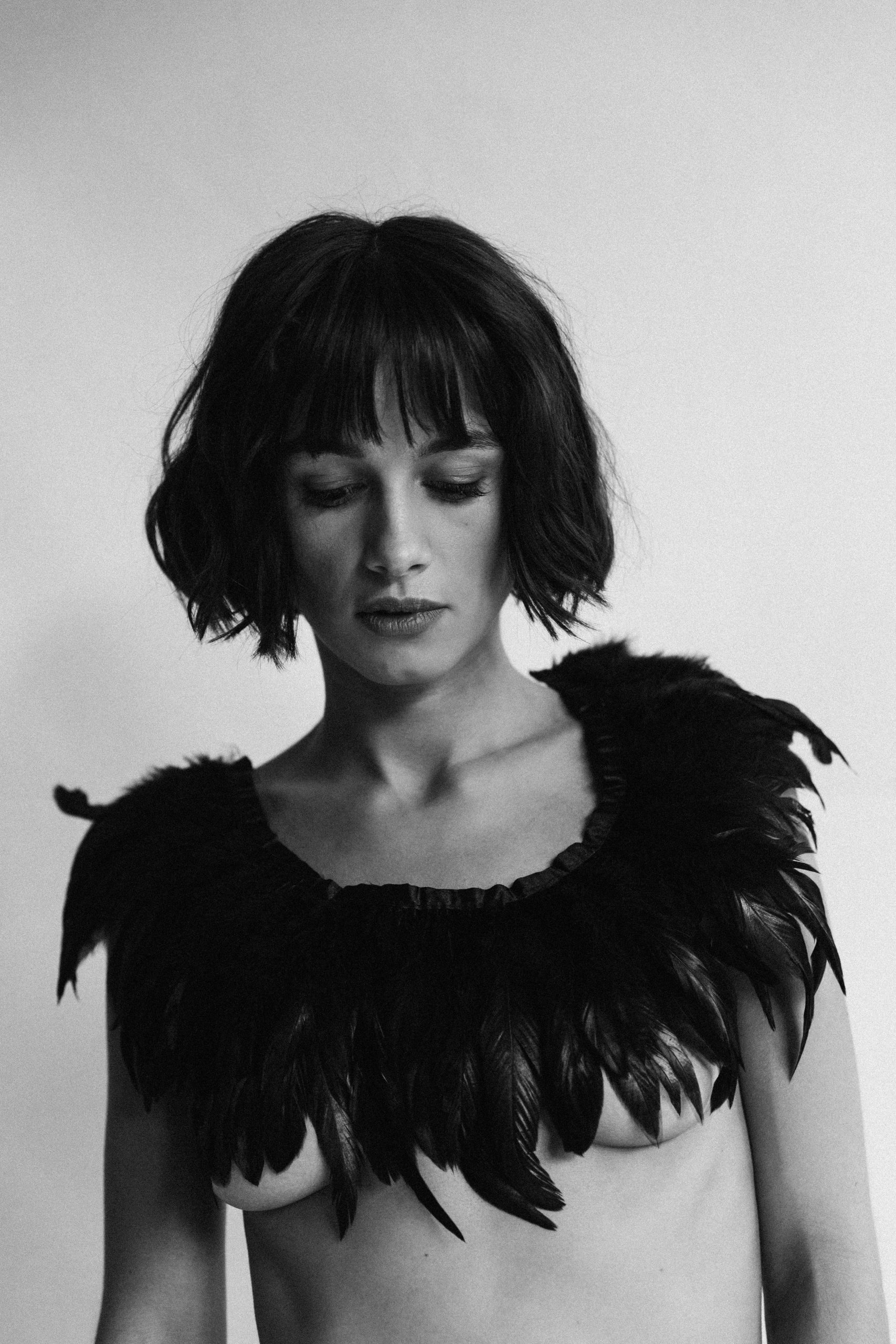
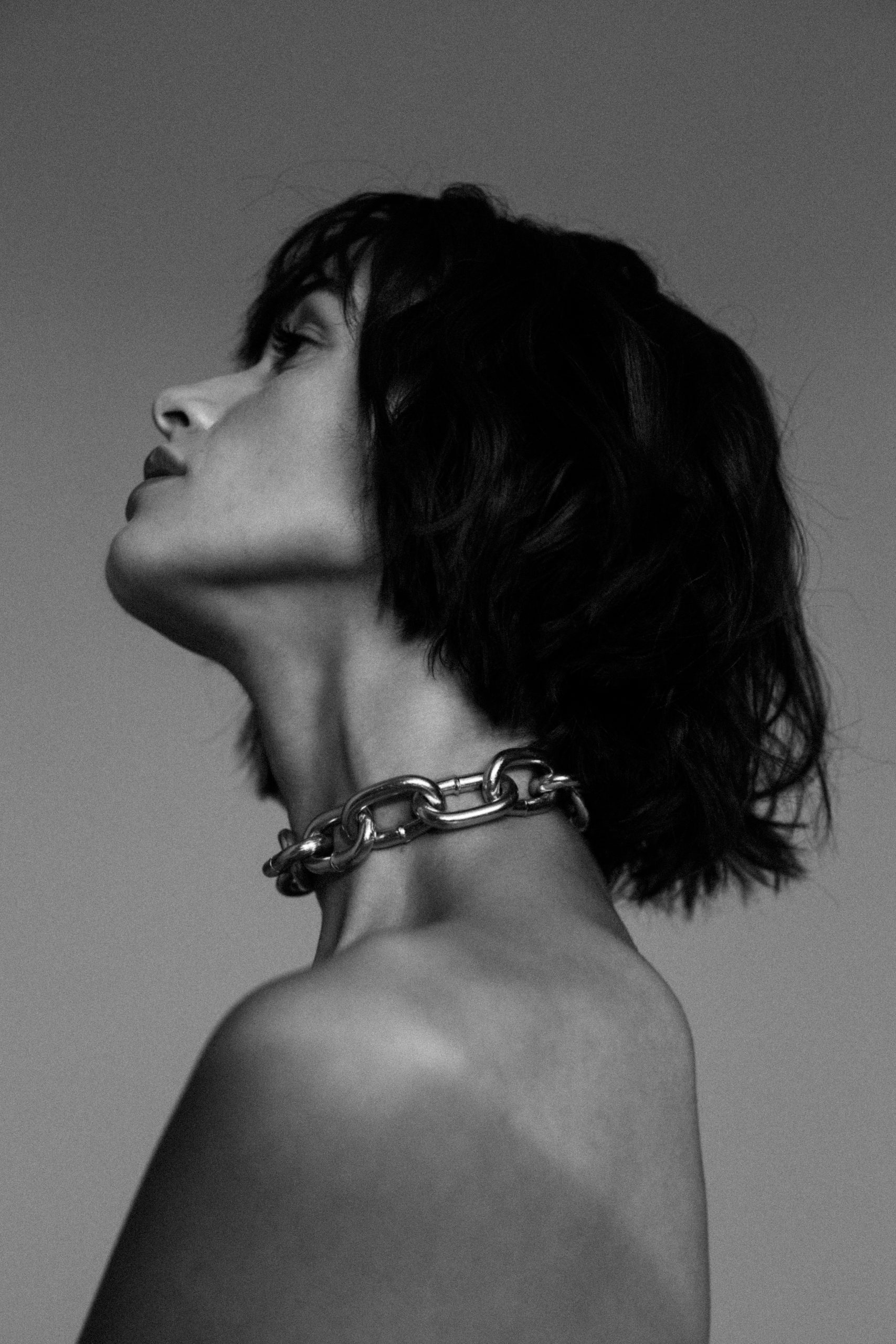
Which is your favourite episode of RAVAGE and why?
I don’t really have a favourite episode, really. Even though I am releasing it in episodes it is a sixty-minute film and I feel like it holds the most power as a movie. I am going to release it on the 12th of May as a movie with the album. One of my favourite moments in the movie is Ghost. It is very touching to see how the heroine explores and experiences nature for the first time and how it touches her. Also later in the episode when she faces her depression, that is one of my favourite moments.
I guess it must be hard to choose a favourite episode as you have created it as a whole thing rather than episode one, episode two, etc. It is interesting to hear your favouirte bits of it.
How has COVID-19 changed your journey as an artist and your perception of the world? I think it has made everyone see we are a lot more temporary than we might have thought.
I was kind of lucky because my creativity works in phases. Covid hit when I was in the creation phase, so I didn’t have to cancel any tours because I wasn’t planning to tour in that time frame. Personally for me it was great to have time and space to create more. On a more creative level as an artist, it deepended what I felt before already. It deepened my urge to be a bridge between bubbles. That’s why I created RAVAGE and then when covid hit and I was like ‘yeah that’s why I am doing it’. Everyone is in their little bubbles and it is so hard to reach people when they are in a different bubble. But artists have the means to reach people comprehensively because everyone consumes art all over the world. I have people with very different political views to myself who follow me and listen to my music. It is my task to use my platform to spread messages to people who wouldn’t hear them otherwise. You know like, maybe someone hears about the feminist issue for the first time because my music is about it. Covid made all of this worse because it meant more time alone at home and more screen time. Screen time is where we are getting divided, so Covid reinforced my urge to be a bridge between all of these different bubbles and really try to spread my message and put it into everything that I do.
Art is such a powerful way of educating people and spreading awareness. I feel like covid gave everyone a chance to step back and evaluate what they are consuming online. It is great to hear your insight!
Thank you to Mogli for taking the time to shed light on the interconnected nature of climate change and social issues.
RAVAGE is out today, the 12th of May.
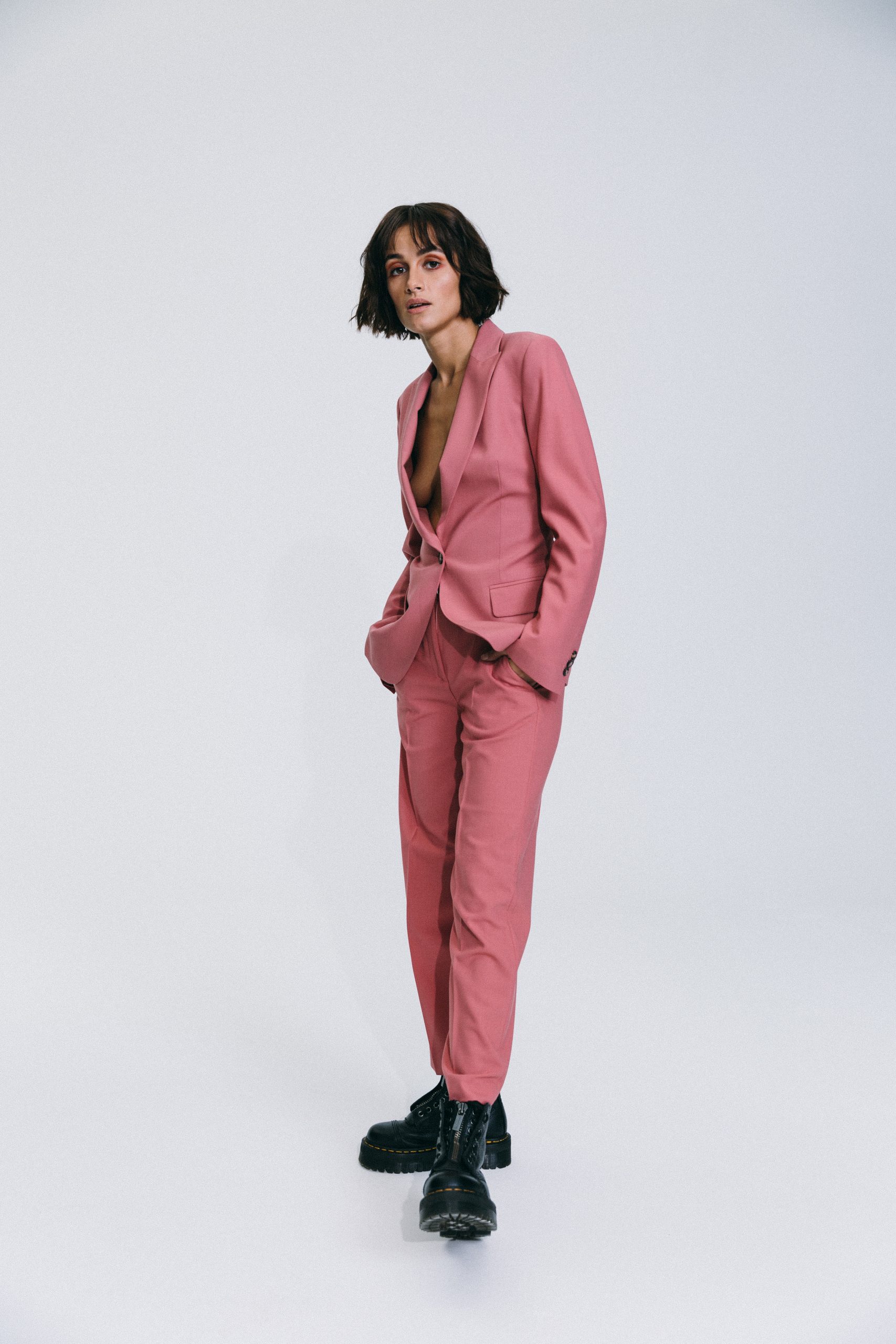
+ Words:
Florenne Earle Ledger
Luxiders Magazine

